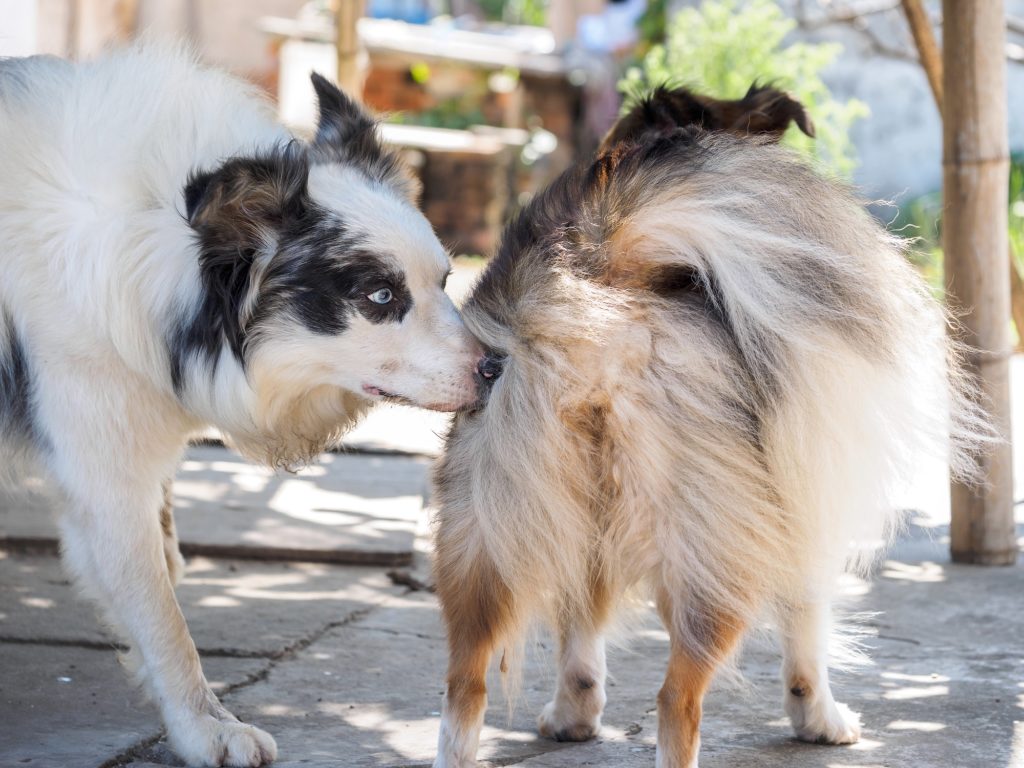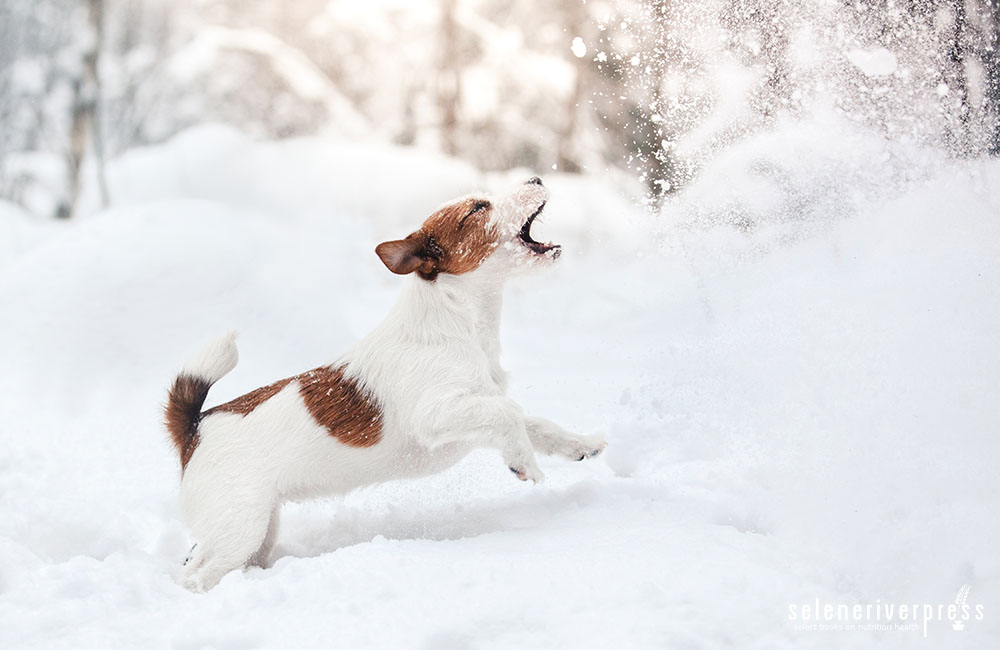We can call agree that our dogs do some pretty funny—and maybe even weird—things at times. Although they live in our homes and we consider them part of our families, they also belong to a species of their own. This means they can exhibit actions and behaviors that occasionally make us shake our heads or turn up our noses. We just need to keep in mind that our four-legged family members have specific reasons for doing the funny things they do.
My favorite quirky behavior is when my dogs gets the zoomies. I laugh and encourage her to go, go, go. Zoomies are just random bursts of energy that prompt your dog to zoom around in circles, seemingly unaware of their surroundings. More common in puppies and young dogs (though senior dogs can zoomie too!), zoomies are completely normal. Some behaviorists refer to these outbursts as Frenetic Random Activity Periods, or FRAPs. They can be triggered by a variety of reasons, including pure excitement and right after bath time, especially if your dog hasn’t had much exercise. Although zoomies can be fun for you and your dog, try to encourage this behavior outdoors or somewhere they won’t hurt themselves—or your fine china. Enjoy this funny dog as he zoomies in the snow.
Another question I get often: “Why does my dog eat poop?” From a pet-parent perspective, poop-eating (otherwise known as coprophagia) is a troubling—and disgusting—behavior. But it’s also pretty normal. About 16% of all dog owners will witness their dog eating poop at some point. The reasons can include everything from food issues or overall gut health to disease, dietary insufficiencies, or behavioral problems. It’s important to evaluate all of the possible reasons for this behavior and refer to your veterinarian for their expert opinion. In my experience working with veterinarians, a common course of action is to address the GI tract with Standard Process products such as Canine Enteric Support and Organically Bound Minerals. And, of course, it’s important to evaluate their diet. For an excellent reference on a foundational canine diet, read Natural Nutrition for Dogs and Cats. And to avoid poop-eating, make sure you pick up after your dog immediately. If you have other pets, clean up after them right away as well—especially if you have litter boxes. In other words, keep temptation at bay by keeping the stool away.
Why do dogs circle or scratch at their bed before they lay down? While we don’t know for sure, many animal behaviorists believe the ritual could be a residual habit from the days when wolves and wolf-like dogs lived out in the wild. Our dogs’ ancestors slept outside and were exposed to the elements, where they didn’t have much warmth or safety. By walking around a spot, they could stamp down grass, leaves, or snow and create a soft, level surface (somewhat like shaping out a nest). Again, this is a normal behavior, but excessive restlessness can be a sign of discomfort or even pain. If your dog is repeatedly circling and digging but can’t seem to get comfortable, it may indicate arthritis or an underlining neurological problem. Take your dog to the veterinarian for an exam if you notice them circling more often.
There’s no subtle way to ask it: why do dogs sniff butts? This behavior has to do with their sense of smell and their communication techniques. When two dogs first meet, the height of canine good manners is to calmly ALLOW each other a butt sniff. It’s similar to shaking someone’s hand and saying, “Hi, it’s a pleasure to meet you.” Think of it as a polite way to find out more information. Given that an average dog’s nose is anywhere between ten to hundred times more sensitive than ours, and that the canine anal area contains glands that signal identifying information such as age, gender, present mood, and then some—it’s an excellent way for them to get to know each other. Even though it may be disgusting to us, think of it as a healthy, socially acceptable form of canine contact! The behavior is just another example of chemical communication in the animal kingdom.
Remember that your dog has a reason for those weird behaviors. So instead of turning your nose up in disgust, simply allow your pet to portray their heritage and be a good, normal, happy-hearted dog.
Images from iStock/Anna-av (main), yanjf (post).


